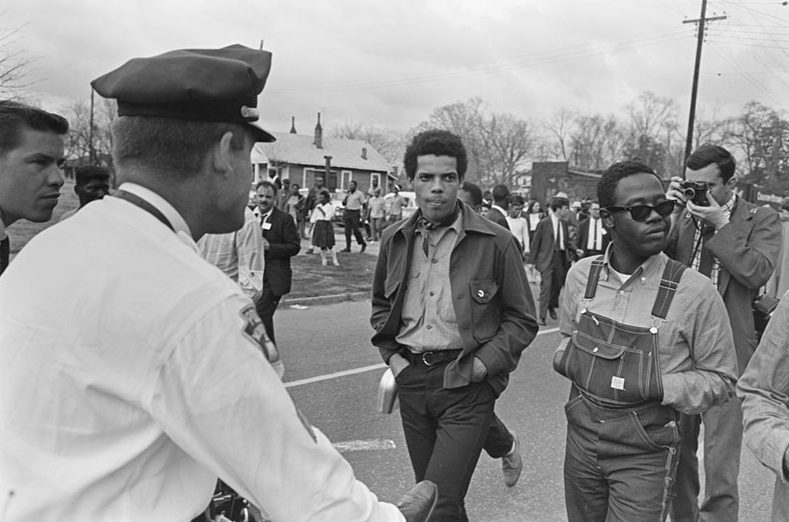“Learn from the Past, Organize the Future, Make Democracy Work.” This is the mission statement that greets visitors at the SNCC Digital Gateway—a wide-ranging, collaborative website that documents and animates the history of the Student Non-Violent Coordinating Committee (SNCC). Founded in April 1960 under the guidance of veteran activist Ella Baker, SNCC became a leading civil rights organization due to countless young organizers who engaged in voter registration, political education, and direct action. The SNCC Digital Gateway chronicles the rise of the organization, as well as its major protests, local leaders, and evolving ideological framework. The site offers an unparalleled look into SNCC’s ideological and organizational history and is a brilliant model of democratic, digital engagement.
Learning from the Past
At its founding, SNCC organizers looked to previous leaders, organizers, and organizations to formulate their activist strategies. The Digital Gateway offers the opportunity for visitors to do the same by familiarizing guests with the people, places, and events that comprised SNCC. When guests visit the “People” section, they will learn more about the mentors, organizers, and administrators that helped create and sustain SNCC. The site creators foreground the work of well-known organizers such as Bernice Johnson Reagon, but they also detail the work of lesser-known activists like Annette Jones. Perhaps most impressive is the list of Freedom Summer Volunteers who took part in the historic 10-week program in 1964. Freedom Summer brought student volunteers to Mississippi to engage in widespread Black voter registration, develop freedom schools, and support political and civic literacy. The sheer number of names and organizations compiled attest to the enormity of the project and how young people fundamentally changed the definition and scope of democratic engagement in the late twentieth century.
Visitors can ideologically, visually, and audibly contextualize individual activists via the “Timeline” section of the site. In this section, site collaborators divided SNCC’s history into five periods in order to highlight the different organizational and ideological phases of the group. The timeline begins with “SNCC Origins and Founding,” which spans from 1943 to 1960. It then progresses through “Direct Action to Voter Registration” (1960-1962) to detail SNCC’s turn to Freedom Parties (1962-1965), and eventually, Black Power (1965-1969). The creators conclude the timeline with the “1968-Present” section. Here, the authors show how former SNCC workers still collaborate with the movement—most notably by endorsing the Movement for Black Lives platform in 2016.
